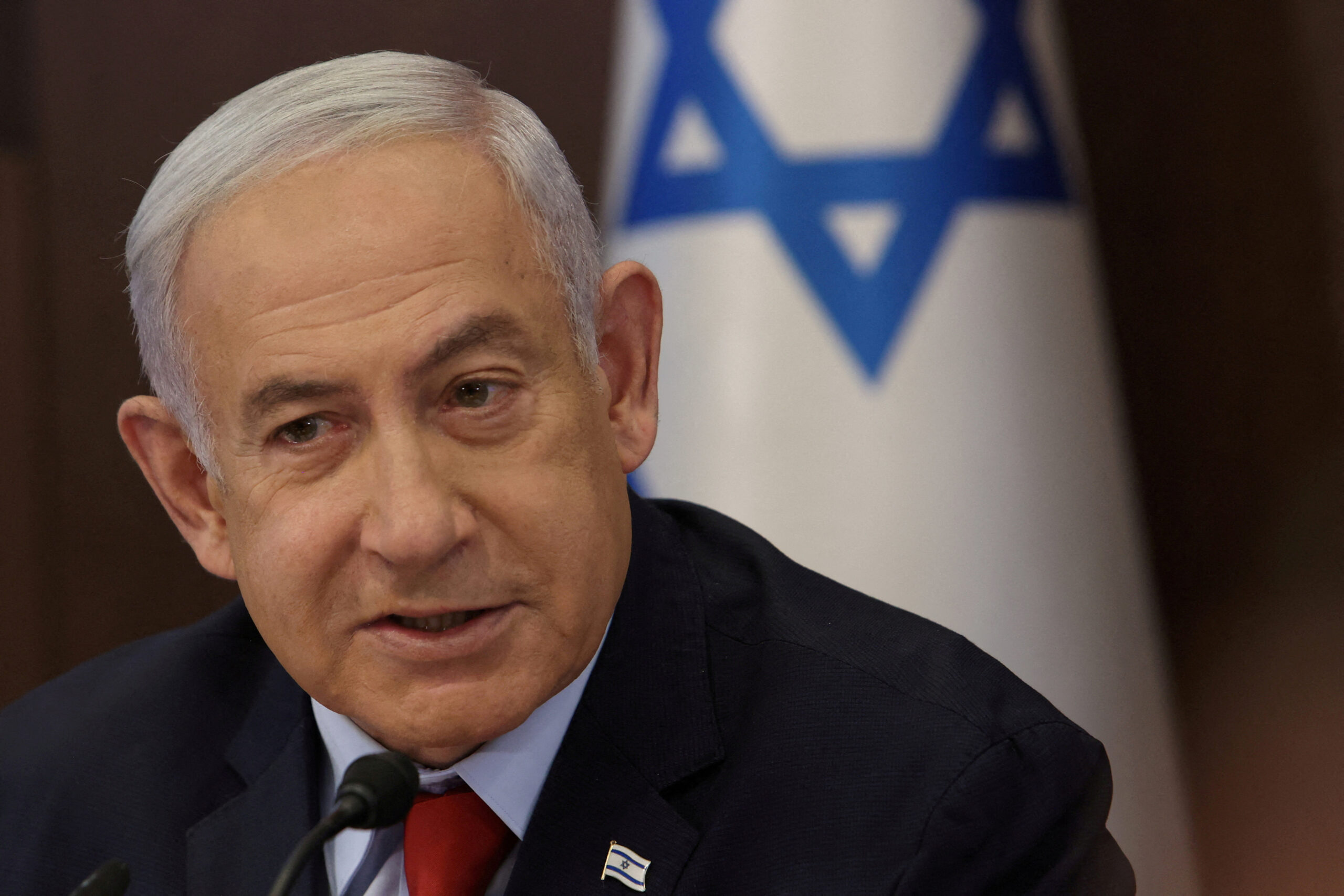Politics
Netanyahu’s Diplomatic Dance in Washington: Tensions and Calculations Amidst the Gaza Conflict

As the world watches closely, Israeli Prime Minister Benjamin Netanyahu is set to visit the United States this week at a time of significant political turbulence. His trip comes amidst a backdrop of mounting pressure to resolve the ongoing conflict in Gaza, both from within Israel and from the U.S. administration.
One of the key events on his agenda is an address to a joint session of Congress—the fourth time a foreign leader has had this honor. The timing of his visit presents both an opportunity and a challenge for Netanyahu. He will be looking to reset relations with Washington after months of tensions, particularly over his hardline stance in the ongoing war against Hamas.
However, Netanyahu’s arrival in the U.S. is not without its critics. In Israel, protests have been growing louder, with demonstrators insisting that Netanyahu should stay home to focus on securing a ceasefire and the safe release of hostages taken by Hamas. This sentiment was clearly echoed by Lee Siegel, a family member of a captive, who challenged Netanyahu’s decision to travel instead of addressing what he describes as his government’s dereliction of duty.
Netanyahu’s critics argue that he has been slow in negotiations concerning a ceasefire, potentially for his own political gain. This frustration has only been compounded by his interactions with far-right cabinet members who have threatened to destabilize his government if he makes concessions.
The White House has also grown increasingly frustrated with the Israeli prime minister. President Joe Biden, known for his strong support of Israel, is now alarmed at the heavy toll of the conflict and Netanyahu’s insistence on a “total victory” over Hamas. This shift reflects broader concerns within the Biden administration about the humanitarian crisis developing in Gaza and the regional implications of the ongoing violence.
Amid these pressures, Biden’s decision not to seek re-election adds an element of unpredictability to the situation. Analysts are suggesting that this decision might afford him greater flexibility in dealing with Netanyahu during his remaining months in office. Former Israeli Prime Minister Ehud Barak commented, suggesting that Biden might feel liberated to pursue what he believes is necessary without worrying about the electoral implications.
Barak’s perspective highlights a broader sentiment that while Netanyahu seeks to anchor bipartisan support in Congress, his policies have started to erode that very support. Democratic Senate Majority Leader Chuck Schumer has framed Netanyahu as an obstacle to peace, indicating that this visit is laden with expectations for Netanyahu to address concerns about the humanitarian situation and the future of a Palestinian state.
As Netanyahu prepares for his meetings, there is a palpable tension surrounding his messaging. He plans to emphasize the importance of military action against Hamas and the ongoing threat posed by Iran. It’s expected that he will use his platform to rally support for his government and bolster his image domestically as a leader poised to protect Israeli interests.
However, the tensions surrounding his approach to the Gaza crisis and discussions around Palestinian rights leave many questioning whether his planned narrative will resonate. There is a distinct generational divide emerging within the Democratic Party, especially among younger members who may not fully align with the traditional U.S.-Israel relationship as championed by Biden.
This evolving dynamic in U.S. politics could signify a new chapter in U.S.-Israeli relations. Kamala Harris, often seen as a potential candidate for the presidency, is likely to adopt a tone that is more in tune with younger Democrats, which might lead to more stringent conditions on military support for Israel.
Throughout his U.S. visit, Netanyahu seems intent on addressing the concerns that have been raised about his leadership. Conversations surrounding the humanitarian issues in Gaza that have killed thousands of Palestinians and displaced even more are unavoidable. The ongoing siege has led to catastrophic food insecurity for nearly half a million people, a fact that both U.S. lawmakers and ordinary citizens are increasingly aware of.
Despite the criticisms, Netanyahu will likely try to steer the conversation away from Gaza’s complexities and towards perceived threats from Iran’s influence in the region. This shift may serve to solidify connections with Republicans who are rallying around him while attempting to distract from the growing dissatisfaction among Democrats.
As this political chess game unfolds, there appears to be a consensus about one thing: Netanyahu’s visit is as much about his future as it is about any immediate changes to the situation in Gaza. There’s a strong belief among pundits that Netanyahu is biding his time, possibly hoping for a shift in Washington with a potential return of Donald Trump to the presidency.
Trump’s administration was marked by a more favorable view of Israeli policies that afforded Netanyahu more leeway than he currently enjoys under Biden. There is a sense in political circles that Netanyahu could gain a “free pass” from a leader who might prioritize his vision over concerns about humanitarian crises or long-term diplomatic solutions.
As Netanyahu prepares to leave Israel, the stakes of this visit are enormous—not just for him, but for the future of Israeli-Palestinian relations and U.S. foreign policy in the Middle East. The success of this upcoming visit will hinge on Netanyahu’s ability to balance domestic expectations with the somber realities of the loss and suffering that have marred this conflict.












